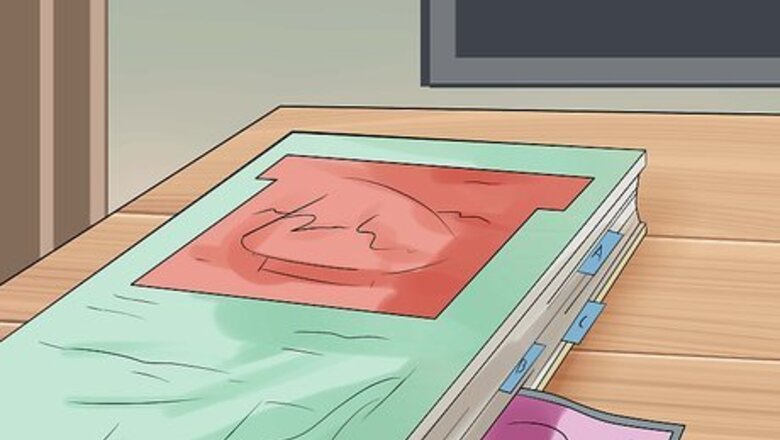
views
Learning in Class
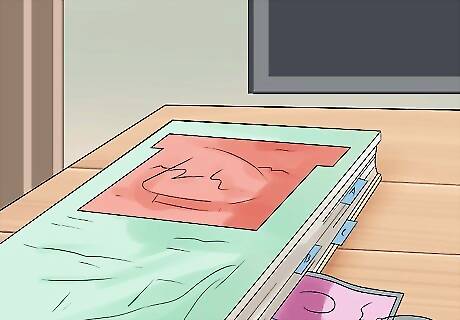
Think about the material before you come to class. You usually know what your class is going to be about because your teacher assigned you some kind of material ahead of time. As you are getting to class, think about what you will be covering that day, mentally preparing yourself for the time ahead. This process will get you in the right frame of mind and help you absorb information better.

Go to class. If you're in high school, you really don't have the option not to show up, but in college, you're in charge of your own time. One of the easiest ways to earn good grades without studying much is to show up to your classes and listen to what your teacher has to say. That means not just showing up but being attentive as well. In addition, many professors will make attendance and participation a part of your grade. Therefore, just attending will contribute to you making better grades. If you don't show up enough, you lose those points.
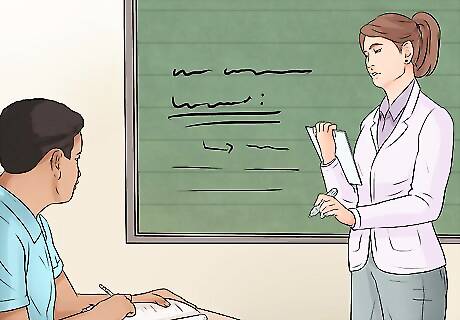
Sit in the front row. It may be tempting to sit in the back row, out of sight and mind of your professor. However, you'll be better able to see what your professor is writing on the board at the front, and you'll be able to hear them better. You'll also be less tempted to let your mind wander.

Ask questions. If you're confused about something, don't be afraid to ask a question. Your teacher will be happy to shed some light on what's confusing you, and other students will likely have the same question.

Be interested. It may sound difficult to do, especially if the subject is something you don't like, such as math. However, start out by feigning interest, if you have to. Psych yourself up, saying how much you love math. Try to find parts of it that do interest you, even if it's a small part. Being interested in what you're learning helps you to take in information more effectively.

Always look for the main points. Your teacher will likely clue you in to what's important by writing main ideas on the board or emphasizing it with her voice. She may even repeat the main ideas to make sure the class is understanding what's important. Constantly be asking yourself what the main ideas and main points are, so that you are using your time in class to think about and absorb the ideas.
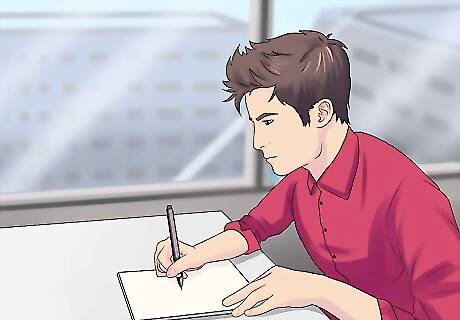
Take good notes. Taking good notes does not mean writing down every word your teacher says. In fact, that often means you aren't absorbing the information, just re-writing it on the page. You also won't be able to keep up, unless you are taking notes on a computer and can type very fast. Therefore, it's best to write down notes with a few words or short sentences that capture the main points. For instance, if your teacher says, "We're talking about verbs today. Verbs are the action of the sentence. There are two main types of verbs, being and action verbs." You could write: "Verbs: action of sentence. 2 types: being, action." It's a good idea to use shorthand or abbreviations to make your writing faster, but be sure to be consistent so that you always know what you wrote. Though you can capture more with a computer, studies have shown that taking notes by hand actually helps you learn more than taking notes on a computer.

Don't get distracted. It's tempting to stop being interested if the room is too hot or people are talking. Maybe the day is really nice outside, or you just don't feel like being there. Commit yourself to paying attention. Block out what's distracting you, and focus only on what the teacher is saying and the class discussion. Everybody's mind wanders sometime. When you find yourself drifting away, bring your focus back to what your teacher is saying. If you absolutely cannot focus or you find yourself going to sleep, try going to the bathroom for a short break to splash water on your face, if your teacher will let you.
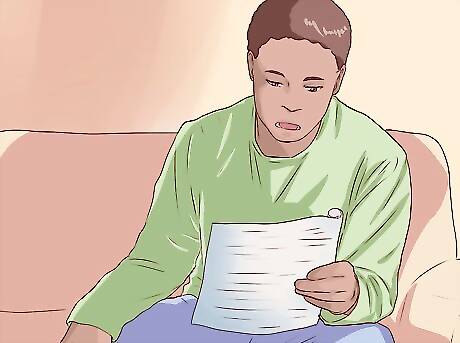
Type or review your notes after class. If you hand-wrote your notes, try typing your notes when you get back home. Typing them will reinforce the information in your brain, helping it to stick for longer. If you typed your notes in class, try re-reading them when you get back home.
Doing Homework
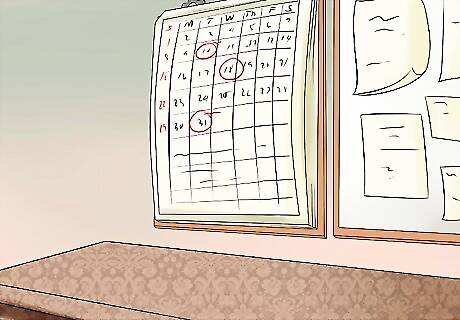
Make a schedule. When you get homework assignments, schedule in time for each of them. Stick to your schedule, so that you always get your homework done on time.
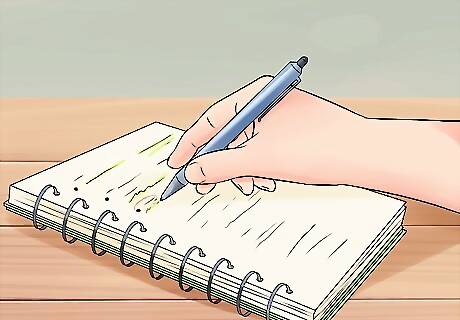
Do your homework. Your homework counts for part of your grade, so turning in your homework is important. However, don't just do enough of the work to pass. Actually take the time to work through the assignment. Your homework and reading is a way to reinforce what you're learning in class, and if you take the time to learn it effectively now, you won't have as much studying to do later.

Read critically. Don't just skim through your textbook. Read each sentence thoroughly, taking in the information. If you have a hard time paying attention, try reading it aloud to yourself or a friend. Take some time to look at what the main ideas are. It may help you to take notes on the main ideas, just so you have a general overview. Plus, writing down will help reinforce the information.
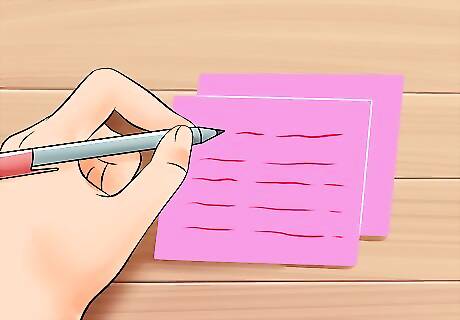
Organize your notes, homework, and tests. Have a folder or binder for each class, and keep your notes, homework, and tests organized by section and date. That way, you know where all the materials on one topic are, and you can pull them out to review later.
Ways to Study

Get the hard subjects out of the way first. You'll be working on it when your brain is fresher, which will make it easier than if you tried to do it when your brain is tired. Also, once you get it out of the way, you'll feel like you've done something big. In addition, your other work will seem easier after the hard stuff.

Take breaks. Studying for too long without breaks can wear you down. In addition, you'll stop absorbing information as well. Be sure to take regular breaks at least once an hour. Get up and walk around. Get a cup of tea. Do jumping jacks, or go talk to a friend for a few minutes. Just take a mental break, and you'll be more prepared to jump back in.
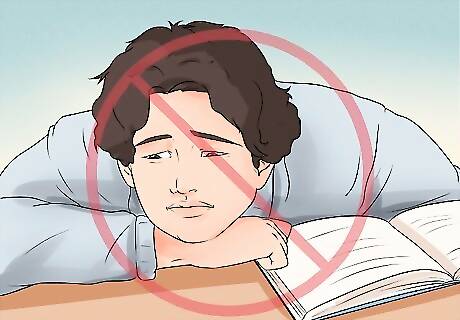
Don't procrastinate. Though you need to take breaks, when it's time to study, you need to study. Don't doodle, or write random notes in the margins. Actually get down to work when you're supposed to, and you'll cut down significantly on your study time.
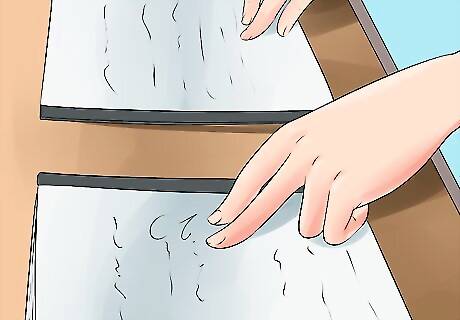
Skip around subjects. Instead of trying to study one subject for hours, skip from subject to subject, especially if you have several tests ahead. For instance, try moving subjects when you take a break. This type of studying keeps you more interested in what you're learning, helping you to learn what you need to know faster.
Studying Effectively
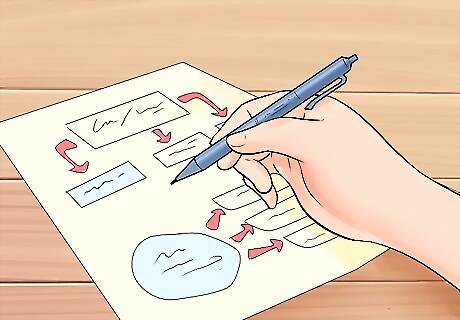
Use a study guide or the syllabus to make a plan. If you don't have either one, you'll have to use your class notes or textbook to determine your plan. Basically, you need an overview of what you need to cover for the test. You can make an outline by using the main headings in your textbook or using the main concepts you covered before this exam. Once you have all of the concepts you need to cover, set aside a certain amount of time to cover each one, based on the amount of time you want to spend in total covering the exam. You don't need to give equal time to each concept. If you know one concept better than another, focus more time on the one you don't know. If one concept is more complex, it might need more time than other concepts.
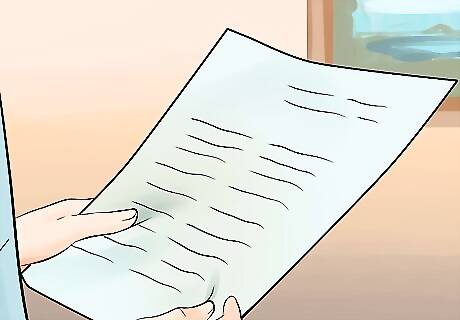
Review your notes. One of the best ways to study for a test is to review your class material. Read over the notes you've taken in class. Skim through the headings of the chapters you read in the time before this exam to ensure you're covering everything you need to do. However, don't try to re-read chapters, as that will take more time than you have to study for the test.

Have discussion groups. Work with your friends to study more effectively. It's more fun to work in a group, and as long as you stay on topic, it can be very effective. Discussing ideas engages you in the material, making it easier for you to absorb information. For instance, if you're trying to study a book for a test, try using an online study guide to spark discussion with your friends. You can find discussion questions for most classic works of literature. For something like math, try having mini competitions. Take one problem, and see who can solve it the fastest. If someone is having trouble, walk through the problem with him or her to help her understand it. Whether you're doing the explaining or need the explanation, you'll be solidifying the information more quickly.
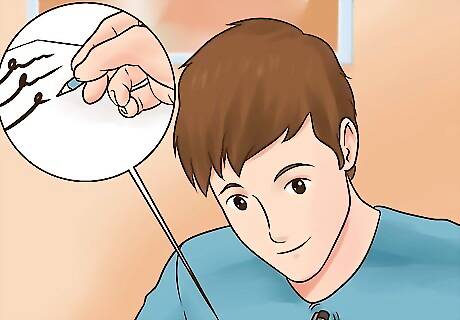
Connect ideas. Most people try to learn by using rote memorization; that is, they read something over and over until it sticks. A more effective way to learn is to connect what you're learning now to something you already know. By pulling it in to your web of ideas, you make it stick more quickly. For instance, say you're trying to learn the circulatory system of an animal. You can compare the parts of the body to a train system, where the main train station is the heart, while the big train routes moving away from the station are the arteries and the ones moving to the station are the veins.
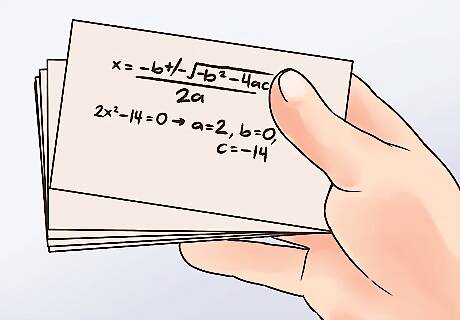
Try flashcards. If you find networking ideas isn't working for you, try flashcards to help your rote memorization. Flash cards help you learn because they force you to repeat the concept over and over. Plus, they allow you to quiz yourself on the topic. Just write a word or something you need to learn on one side, and then write the definition or what's connected to that concept on the other side. Flashcards work best with study concepts that have two parts, such as words and definitions, events and dates, or the name of an equation and the equation. Another way flashcards can help is they allow you to study just what you don't know. Once you've definitely learned a concept or word, you can take it out of the set of cards, focusing your time on learning what you don't know.
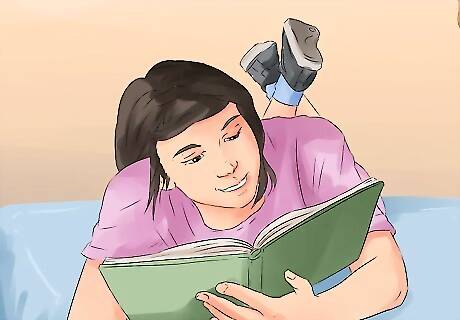
Focus your study on the type of test you're taking. For instance, if you need to remember dates, flashcards will be more effective. If you're trying to learn how to do problems, working through practice problems is likely the most effective way to study. If you're trying to learn concepts or study literature for an essay exam, working in a group discussion might be the most effective way to study.
Taking Tests
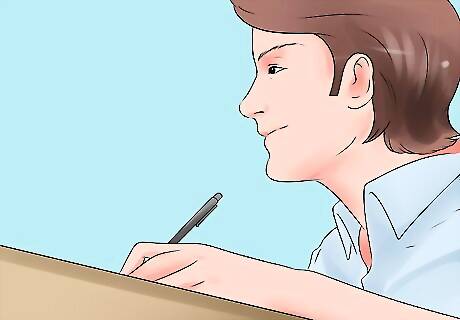
Write down the facts. If you need to remember a set of facts for the test, write them on the top of the test paper as soon as you're allowed to start writing. That way, you know you won't forget them while taking the test.
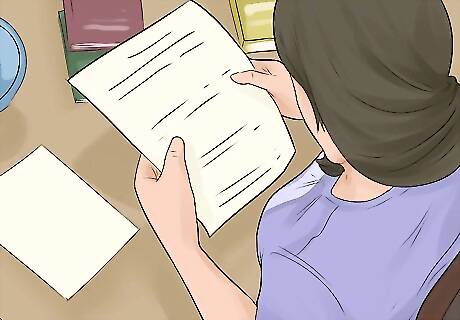
Always read the directions. The directions may tell you how long your answers need to be or even how many questions you need to answer. It's important to read the directions carefully, or you may lose easy points.
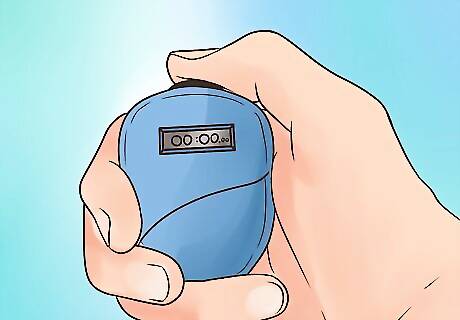
Time yourself. Make sure you have enough time for all parts of the test. Take a moment at the beginning to look through the test and see what you have ahead. If you have essay questions, make sure you don't spend so much time on other parts of the test that you don't have time for the essay question. Keep an eye on your time throughout the test.

Work to your strengths. If you know you're best at short answer, start with those questions first. That way, you know you will have answered the questions that you are best at, giving you the most points.

Read questions carefully. Sometimes your teacher will word questions in a particularly confusing way. Make sure you know exactly what the question is asking before answering. In other words, you don't want to jump to an answer after having only read a few words of the question.
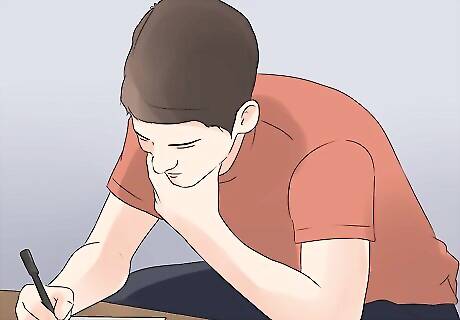
Check if you lose extra points for wrong answers. On some tests, you just don't get the points if you answer incorrectly. On other tests, you don't get the points if you skip the question, but if you answer incorrectly, you get extra points taken off. In the first case, guessing on multiple choice does you no harm and may help you. In the second case, you may lose more points than you gain by guessing.
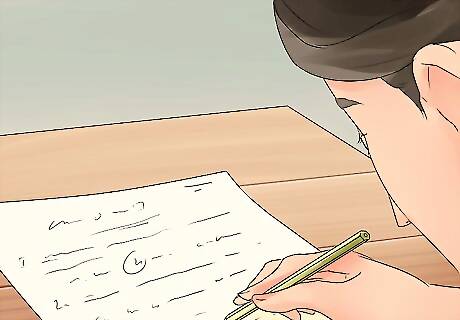
Know how to answer multiple choice questions. Multiple choice questions can make it easier for you to answer the question. You don't actually need to supply the answer, as the answer is already there as one of the choices. However, sometimes they can be difficult because two answers seem too similar. Once you've read through the question, decide on what you would answer before looking at the answer choices. That way, you won't be swayed by other answers before coming to a conclusion. If your answer is there, pick it, and move on. If isn't, reread the question to see if you read it wrong. If you're having trouble deciding, eliminate the silly or ridiculous choices. Often, one or two of the answers will be obviously wrong. Put a line through those so you don't have to consider them anymore. If you still can't decide between the other answers, pick one and move on, as long as you're not penalized for guessing.
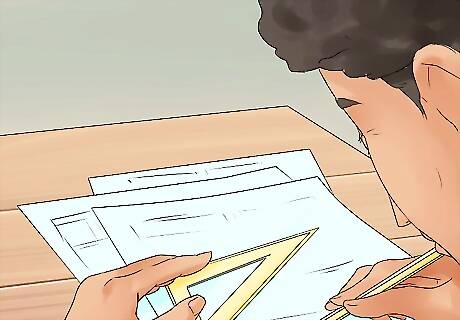
Jot down a quick outline for longer questions. If you need to answer an essay question, make a quick outline first. Just make sure you know what main ideas are going into your essay and how you're going to organize them. It will make your writing go more smoothly.
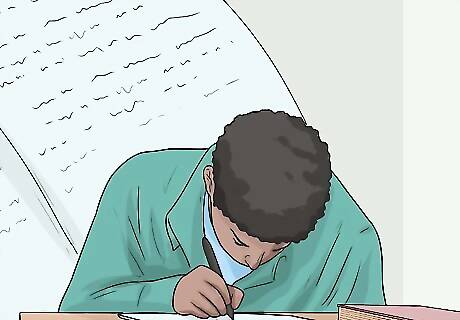
Check your answers at the end. If you have time at the end, go back through, and check your work. If you're taking a math exam, look over your work to make sure you didn't make a silly mistake. Also, check to make sure you didn't miss any questions, as that's an easy way to lose points.
Taking Care
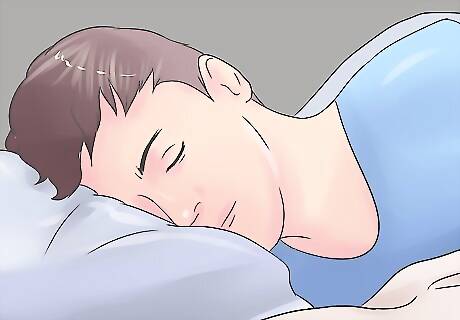
Get enough sleep. When you are rested, you retain more information than when you are tired. Therefore, by just getting enough sleep every night, you will retain more information, lessening your need for study time.
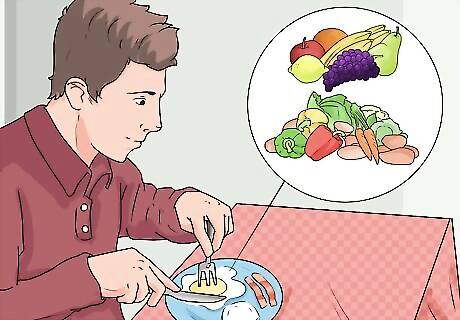
Eat the right foods. Your body is better able to function when you feed it the best foods. Skip sugary junk food, and stick with square meals that include lean proteins, fruits and vegetables, and whole grains. Your brain will work better when you feed it better.
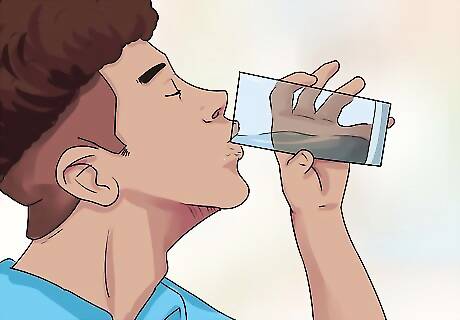
Drink your water. Just like the rest of your body, your brain needs water to function properly. Staying hydrated will keep your brain functioning at its best, so be sure to get enough water everyday. You can count tea, coffee, and juice in your water intake. Just remember, juices are sugary, so don't drink too many ounces of juice. Try adding fruit to water to infuse it with flavor, and make it more enticing. Though the standard rule is to drink eight glasses of water a day, you may need more. Women generally need about 9 cups of water a day, and men need about 13 cups.
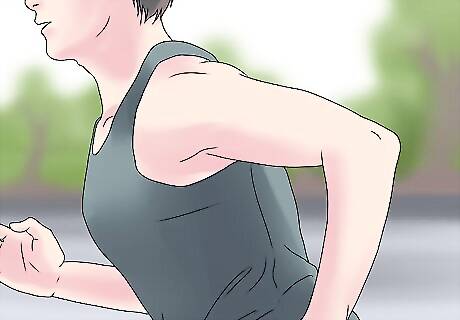
Get regular exercise. Just like exercise energizes your body, it also energizes your mind. It gets your blood flowing, increasing blood to your brain. Try getting in at least a little bit of exercise everyday. For instance, try taking a short walk or jog when you're taking study breaks. You'll come back energized and ready to get back to work.










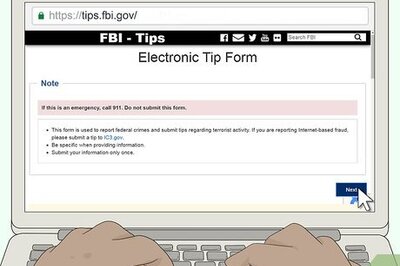


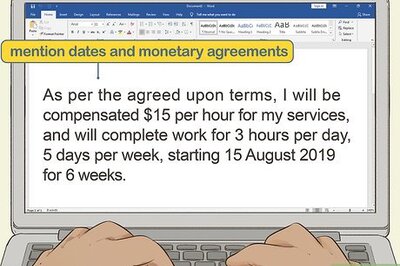




Comments
0 comment